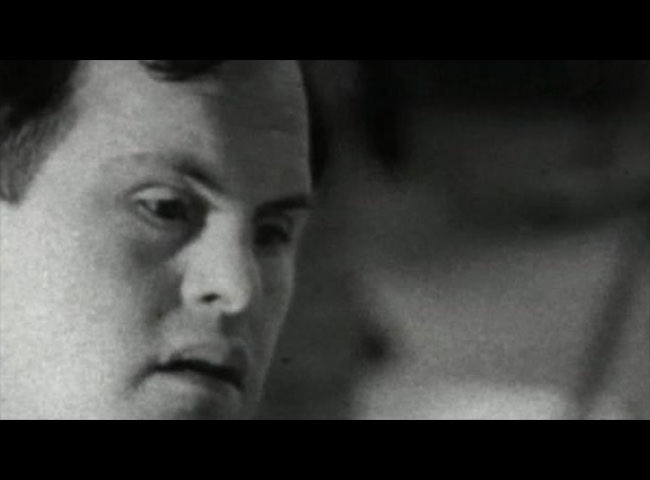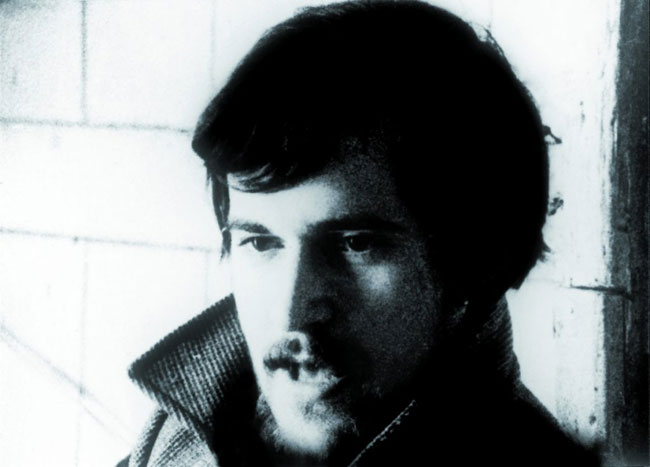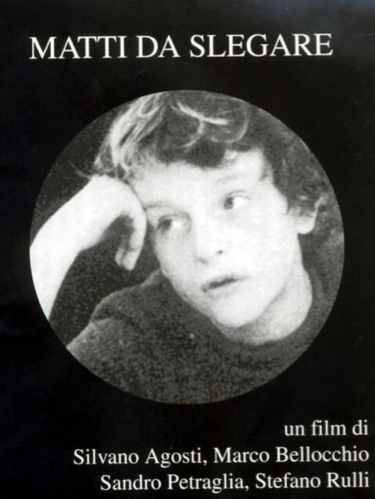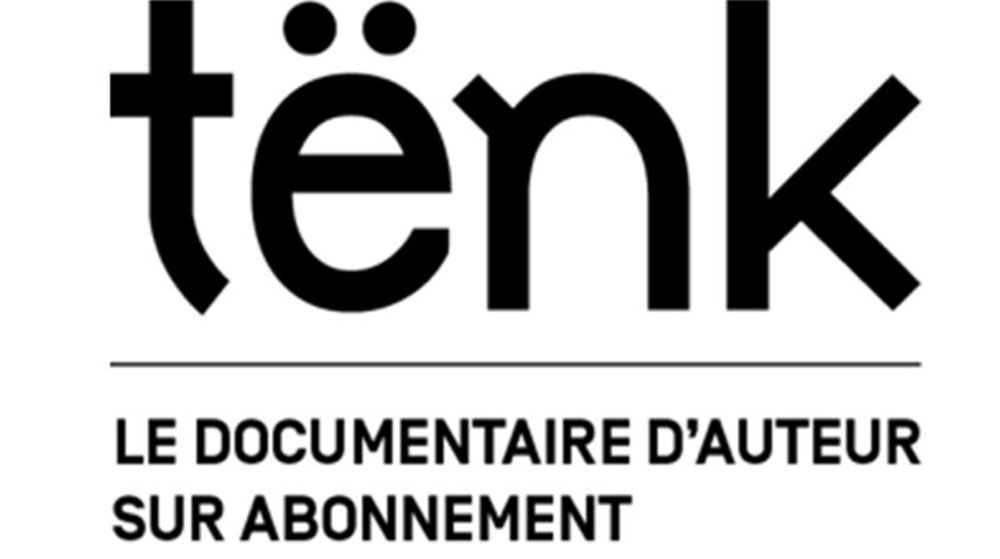Fous à délier
-
Réalisé par Marco Bellocchio, Silvano Agosti, Stefano Rulli, Sandro Petraglia • Écrit par Marco Bellocchio, Silvano Agosti, Stefano Rulli, Sandro Petraglia
-
Italie • 1975 • 135 minutes • Noir & Blanc
- Réalisation :
Marco Bellocchio, Silvano Agosti, Stefano Rulli, Sandro Petraglia - Écriture :
Marco Bellocchio, Silvano Agosti, Stefano Rulli, Sandro Petraglia - Image :
Ezio Bellani - Son :
Remo Ugolinelli - Montage :
Silvano Agosti, Marco Bellocchio, Stefano Rulli, Sandro Petraglia - Musique originale :
Nicola Piovani
- Production (structure) :
11 Marzo Cinematografica - Coproduction :
Assessorato Provinciale alla Sanità di Parma, Regione Emilia-Romagna - Ayant droit :
11 Marzo Cinematografica
- N° ISAN :
non renseigné
Résumé
Trois jeunes sortent de l’hôpital psychiatrique pour mener une "vie normale" en travaillant à l’usine. Ils confient leurs perspectives d’avenir. En 1968, alarmée par l’état catastrophique de la psychiatrie publique en Italie, la municipalité communiste de Parme confia à Mario Tommasini, un ancien ouvrier du gaz, la direction du secteur de la santé mentale et sa réorganisation sur un mode révolutionnaire. Cette initiative politique, inspirée par Franco Basaglia, critique de l’institution asilaire, marqua le début d’une vaste entreprise de réinsertion sociale des patients.
"Matti da slegare, c’est cet impressionnant film qui a su intégrer la méthode d’une avant-garde du cinéma de non-fiction de la fin des années 1960 – à savoir le perfectionnement d’un "cinéma direct" permis grâce aux nouvelles techniques de filmage : son direct, allégement du matériel de prises de vue – aux avancées théoriques de la psychiatrie moderne. En résulte pour les quatre filmeurs la maîtrise d’une méthode documentaire éthique qui prend pour point de départ les expériences de psychiatrie démocratique menées par Franco Basaglia. L’oppression de l’institution asilaire est combattue par le refus d’une vision sensationnaliste, déplaçant ses "fous" hors des murs, et prouvant, par la positive, combien il est vertueux de prendre en compte l’individu et sa complexité. Le temps long accordé à la parole et au discours permet de cerner en intimité les trois personnages du film (Angelo, Paulo et Marco), et écarte d’office toute possibilité de les réduire à leur symptôme. En voilà un projet farouchement politique."
(Pierre Guidez - Visions du Réel)
This documentary was distilled from a 3 1/2-hour television film Nessuno o Tutti, to make the point that many inmates now in mental hospitals could be released without harm to society, and to their advantage.
"Matti da slegare impressively incorporated the methodology of the non-fiction filmmaking avant-garde of the late 1960s – namely perfecting cinéma direct thanks to the use of new filming techniques: direct sound and cutting back on filming equipment – into the theoretical progress of modern psychiatry. The result for the four filmmakers was the mastery of an ethical documentary method which took Franco Basaglia’s democratic psychiatry experiments as its starting point. The oppression of the asylum apparatus is countered by rejecting a sensationalist vision, by filming its “madmen” in the outside world, and proving, in positive terms, how virtuous it is to take individuals and their complexity into account. The unhurried approach of words and speech allows for an intimate understanding of the film’s three characters (Angelo, Paulo and Marco) to develop, while immediately ruling out any possibility of reducing them to their symptoms. A fiercely political project."
(Pierre Guidez - Visions du Réel)
Mot(s)-clé(s) thématique(s)
À propos du film
Sélections et distinctions
- 2022 • Visions du Réel • Nyon (Suisse) • Invité d’honneur Marco Bellocchio
- 1976 • IFFR - International Film Festival Rotterdam • Rotterdam (Pays-Bas) • Sélection officielle
- 1975 • Festival international du film de Berlin - Berlinale • Berlin (Allemagne) • OCIC Award (Forum of New Cinema)
Comment avoir accès au film ?
- Sortie en salle
-
Édition DVD
- Il n'existe pas d'édition DVD à notre connaissance
- Accès VOD



